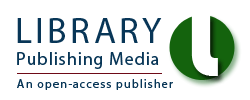ISSN: 0000-0000
EJEV (2020), Vol 1, 1-2
Published online: 01 April 2020
Full Text (Sohail ~209kb)
Muhammad Sohail*
St Hilda’s College, Cowley Place, University of Oxford, Oxford OX4 1DY, UK
*Correspondence to: Muhammad Sohail, Email: muhammad.sohail@st-hildas.ox.ac.uk
© Copyright The Author(s). This is an open access article, published under the terms of the Creative Commons Attribution Non-Commercial License (http://creativecommons.org/licenses/by-nc/4.0). This license permits non-commercial use, distribution and reproduction of this article, provided the original work is appropriately acknowledged, with correct citation details.
Welcome to The European Journal of Extracellular Vesicles (EJEV)!
I am excited to be a part of the launch of this new open-access journal in the ever-expanding research area of extracellular vesicles (EVs), and would like to emphasise the compelling reasons for this venture. The interest in the biology of extracellular vesicles, with their potential applications in medicine, therapy and diagnostics, has exploded in the past few years, creating ample space for another scientific journal which can provide a fast-track route to publishing research in this field. As long-term supporters of open-access publishing (being among the first few publishers to join this movement in 2005), we believe that it is important to have a journal which gives free access to its contents and promotes high-quality research and intellectual output of scientists who may have limited access to mainstream journals. This is particularly true for scientists from developing nations whose first language is not English. Thus, we will work in partnership with such authors to ensure that their research is made freely available to the wider scientific community.
An Editorial Board with experience in the field and a vision for the future
Editors and reviewers play a pivotal role not only in helping to evaluate individual manuscripts, but also in determining the overall quality and direction of a scientific periodical. Thus, without the help of the scientific community and experienced researchers in the field, it will not be possible to make this into a high-impact journal. While we are keen for established, grant-holding researchers to join the EJEV Editorial Board, we also strongly encourage emerging and shining early-career postdocs and group leaders to consider joining the Journal’s Editorial Board, as well as the Reviewers’ Panel. We believe this would provide them an excellent opportunity and experience to assess and critically analyse unpublished peer research, and play their role in advancing this field. Such an opportunity may be difficult to find with other mainstream journals and publishers. Furthermore, we welcome insights from emerging and established researchers to provide a vision for the future of EV research and direction for the Journal.
To express your interest in joining the EJEV Editorial Board please send us an email on ejevlpm@gmail.com with your brief CV and a list of your recent publications in the field.
Invitation to submit an article to EJEV
The Journal invites manuscripts on all aspects of the various types of extracellular vesicles, including, but not limited to: the biology of their production; structure; function; applications in medicine, therapy and diagnosis (as biomarkers); and new techniques – a broad-based theme that should appeal to the largest possible audience interested in this subject.
We will be publishing a significant number of high-quality original research articles and scientific reviews from authors around the world. The Journal has a strong belief in the impact both positive and negative data can have on scientific research, so actively encourages the submission of both. We are confident that the Journal will fulfil the role of a mainstream open-access international journal in this ever-expanding area of research, serving the best interests of the scientific community worldwide, while providing a complete, reliable and freely-available source of information and essential reading on current developments in the field.
Publish free for a limited period!
The cost of publishing an article to a publisher is extensive – from the stage of receiving a manuscript to its evaluation, typesetting, copy-editing, proof-reading, digitisation, database indexing, and making it available online. Conventional publishers cover these costs through sales and subscriptions, which is not possible for open-access publishers. Thus, they charge a publication fee (open-access fee/OAF). However, this is not a direct burden on the authors’ actual research grant or their personal funds, as several funding bodies now allow additional funds for publishing in open access journals.
As a publisher, we have traditionally kept our publication fees low for our journals, as we have been fortunate enough to have the support of colleagues from academia and industry to help us with some stages of publishing. We pass on these savings to our authors. We also help authors from developing countries by partial or full waiver of the OAF. We will keep this theme going for EJEV! In fact, we will not charge any publication fee for the first 25 articles published in the Journal, as long as the articles are prepared according to the instructions for authors and within the recommended word limits.
Indexing Information
As well as giving free, unrestricted access to the published content via the Journal website, and via permanent digital archives, such as PubMed Central and the Directory of Open Access Journals, we plan to index the journal in several key scholarly databases, including PubMed/Medline, Biological Abstracts, SCOPUS, Google Scholar, CAS, NextBio and many others. This is aligned with our aspirations and policy to support open-access content, and to give authors and their research high global visibility among their peers.
We very much look forward to your support this exciting new venture and welcome any comments or suggestions you may have to improve the Journal.
Email: ejevlpm@gmail.com
Tel: +44(0)1865 600222
Twitter: @ejevlpm
